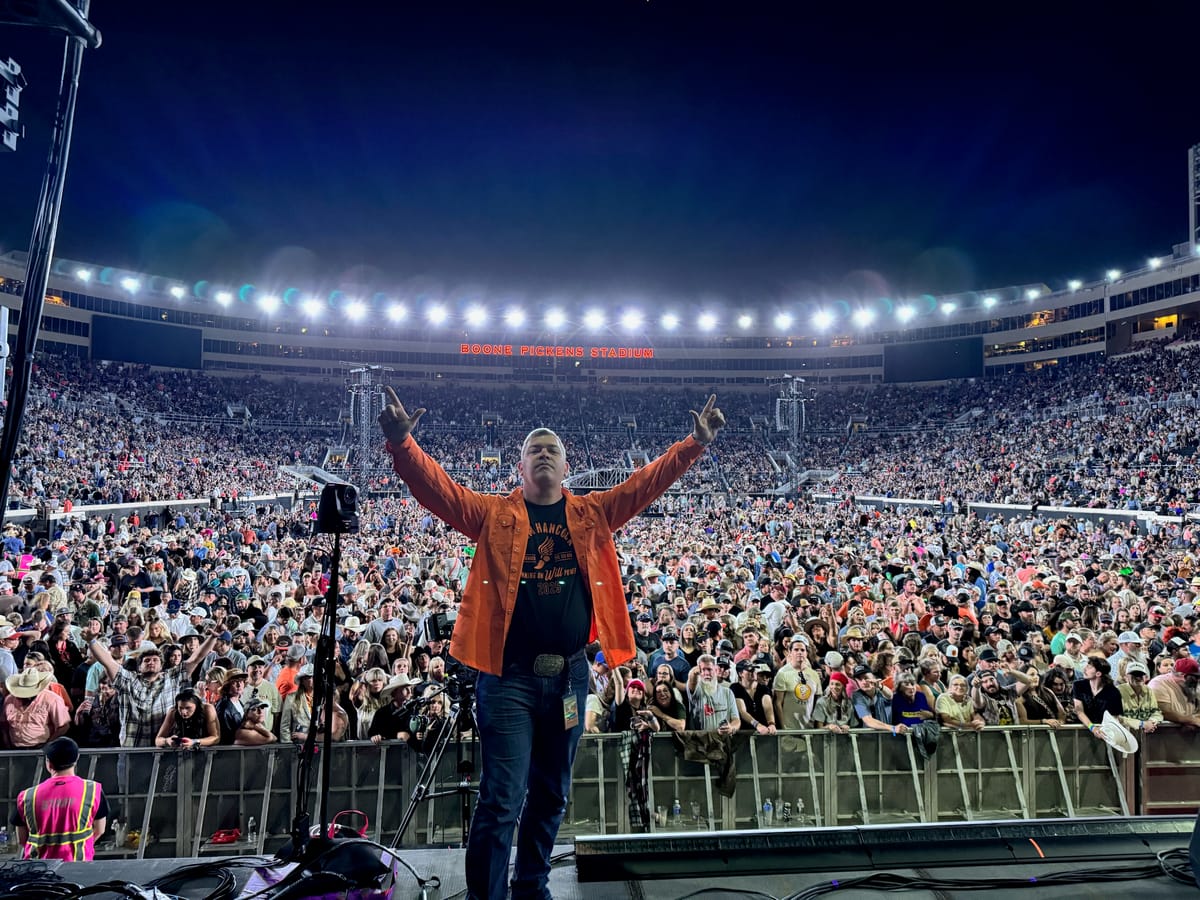
Oklahoma has been a launch pad for talent for decades, and for good reason. There seems to be something in the state’s red dirt that both conjures and conducts the raw materials for greatness: resilience, ingenuity and the kind of warmth that come from a community that lifts up its own.
If the yet-to-open OKPOP museum reminds us of one good thing, it’s the unsung but steady drumbeat of talented Oklahomans who’ve departed to create waves in other cities. From Kristin Chenoweth to Bill Hader and Sterlin Harjo, Oklahoma has seen some of its biggest talents strike out to claim their stake. And yet, many who leave feel a strong pull back—either to live, produce projects or draw creative inspiration. What do we make of that inclination to return?
There’s something ineffable about Oklahoma, and to understand it is to reconcile tensions. It’s a place that is at once chronically overlooked and yet impossibly full of life; a young state built on bootstrapped reinvention, stolen land and grave atrocity that holds stories older than we can name. To be from here is to inherit a set of qualities that can’t be manufactured: humility, curiosity, the instinct to create something out of nothing and the arrogance to believe that you can. And perhaps most importantly, an imperative to reckon with complexity without rushing to resolve it.
The “Okie spirit,” it seems, is magnetic, keeping people tethered long after they leave to thrive beyond its borders. But what does it mean to be from a place that is constantly trying to reinvent itself? What happens when the reinvention doesn’t match the picture you’d imagined? And why, no matter how far we roam, do so many of us feel the alluring pull of open pastures calling us home?
Some questions don’t have easy answers, but in the year of our OKC Thunder National Champions 2025, Okie excellence is enduring and visible, and that alone is worth a conversation. We asked a few Oklahomans who’ve set out to build their creative practice in other cities how they feel about their home state now; how that connection drives their work; and if they ever feel the pull back. Here’s what they had to say.
Josh Crutchmer: Author, Planning Editor at The New York Times, Freelance Writer for Rolling Stone, Raised in Okmulgee, Lives in New York City
Describe your current work, and your path to it.
“I’m a planning editor at The New York Times, and a freelance writer for Rolling Stone, No Depression and other outlets. I’ve also written books, and all those last things are somehow tied to Red Dirt music. It’s funny—I consider myself the journalist of record for that genre, and here I am living and working in New York. But most of what I write about is happening in my home state.”
Why is being an Oklahoman so central to your creative work?
“I fell in love with Red Dirt while living in Oklahoma and it gave me something to relate to. And I feel a responsibility as a journalist to help tell that story because I’m very familiar with it.
“My colleagues are always asking me about the music I’m covering. Ken Pomeroy played in New York recently and my email blew up. The most common reaction is, ‘What’s in the water in Oklahoma?’ I try to explain to them that Red Dirt music has its roots in Woody Guthrie, and has been around for half a century, that these singers were always there.”
Do you recognize that Oklahoma magnestism, or state pride, in yourself?
“Absolutely; it’s home and familiar. I think there’s also that sense of being overlooked—you can call it state pride, but it certainly resonates for me. I don’t pay lip service to being from Oklahoma; I think it’s really cool that a public school kid that went to a public university in Oklahoma is so heavily involved in the editorial decisions of The New York Times’ front page—a place that most critics associate with really high-end universities. I wear that as a badge of honor in and of itself.”
Do you think there’s something about being raised here that trains people to be great in other places?
“There’s something inherent in growing up or being educated there, and interacting with the people you interact with, that prepares you to experience the rest of the world. If you can get past the idea that there’s any reason not to do that, it’s wonderful and freeing.”
Would you ever move back?
“I feel that pull, but also have this growing realization that I’m never going to get to move back. In [my book] Red Dirt Unplugged, there was a lot of soul searching, and I wondered if it’d end with me moving back home. Not only did that not happen, it’s also okay to stop dreaming that it will. I’ll probably have to love Oklahoma from afar.”
How do you reconcile that?
“I think if my relationship with Oklahoma were to be taken to its extreme, it could be described as tragic. Everything I am—the curiosity instilled in me as a person and as a journalist—it all comes from Oklahoma.
“But the ties of where you’re from, they don’t leave when you leave the state. I spoke about that when I gave the commencement address for OSU (where I still have season tickets), and it was one of the highlights of my life. There’s always a way to get back to them.” •

